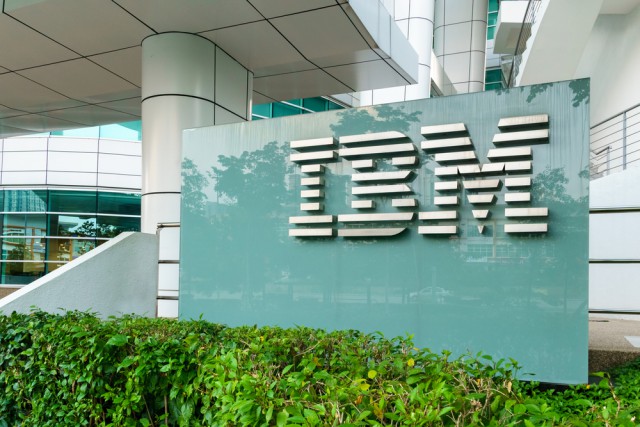
How data storage demands will drive edge computing growth [Q&A]
Enterprises are producing larger and larger amounts of data and as they deploy more IoT, edge and 5G devices the volume is only likely to increase.
This puts more pressure on storage capacity which has the potential to be an inhibiting factor in digital transformation. We spoke to Dr Tong Zhang, co-founder and chief scientist at ScaleFlux, to learn more about the importance of storage to enterprise IT plans and infrastructure.

Microsoft for Startups Founders Hub includes free Azure credits and is now available to everyone, regardless of funding
Microsoft is increasing the support it offers to startups by reducing the eligibility criteria for the Microsoft for Startups Founders Hub as the platform is made generally available. With the move, the company is looking to eliminate the boundaries that stand in the way of getting ideas off the ground.
Now billed as being "open to anyone with an idea", the Founders Hub is a startup ecosystem can be used by innovators regardless of whether they have funding or not. The platform gives users access to up to $150,000 in free Azure credits, free access to GitHub and Microsoft 365 as well as potential for mentorship and guidance from experts. There is also $1,000 of credit and more available with OpenAI.

Microsoft Defender for Cloud now protects Google Cloud Platform
Windows users are familiar with Microsoft Defender running on their computers offering local protection, but there is also a cloud-based version of the security tool. Microsoft Defender for Cloud is the result of the unification of Azure Security Center and Azure Defender.
Having already added support for Amazon Web Services (AWS), Microsoft has now added protection for Google Cloud Platform. The latest addition comes as Microsoft recognizes the fact that 92 percent of organizations now embrace a multi-cloud strategy.

New Hitachi solutions aim to streamline business cloud management
Cloud strategy can make or break an organization's ability to provide timely access to data in order to deliver actionable insights.
Digital infrastructure, data management and analytics company Hitachi Vantara is launching a range of new hybrid cloud products and services that aim to deliver agility, scalability, and flexibility for both private and hybrid clouds.

Enterprise tech leaders want a one-stop solution to manage all their platforms and clouds
The old days of having systems in-house where they were easy to control are long gone. Businesses today are increasingly reliant on a range of cloud, SaaS and other solutions that can be a challenge to manage.
A new report from CloudBolt Software shows that 88 percent of over 500 senior tech people surveyed say they want a 'manager of managers' -- an overarching solution to bridge the siloes, unify the overall multi-cloud/multi-tool strategy, and actively govern everything from a single location.

How to address the security risks of cloud migration [Q&A]
Cloud is an enabler of productivity and provides the infrastructure which supports modern distributed workforces. But it also poses a serious security risk to businesses that are unprepared to cope with modern threats. Figures from 451 Research show that 40 percent of organizations have experienced a cloud-based data breach in the past 12 months.
Organizations are spending millions on firewalls, endpoint protection and other security measures. What these organizations are missing, however, is visibility and control of security policies that govern 'what can talk to what' and 'who can talk to who' across the entire organizational infrastructure, including on-premise, cloud-native, and hybrid cloud. This creates security blind spots and misconfigurations.

Security concerns are the biggest barrier to cloud adoption
Cloud take up is showing no signs of slowing down, with 97 percent of IT leaders in a new survey saying that their strategy includes the expansion of cloud deployments, however, 63 percent say that cyberthreats are the main obstacle to their cloud plans.
The study, from cloud security company Confluera, looks at how IT leaders detect, evaluate, and act against cybersecurity threats in today's cloud environment.

Investors get excited about 5G technology
We all know that 5G is set to shake up the technology world by offering faster, more reliable mobile data connections. But what aspects of the 5G world are proving attractive to investors?
New research commissioned by World Wide Technology (WWT) looks at the categories of 5G tech that are attracting venture capitalists and investors across the US and UK. Cloud computing comes out ahead, identified as the top category for investment by 72 percent of respondents.

From digital revolution to evolution: How IT leaders can implement small-scale change for long-term benefits
The popularity of cloud is self-evident. A recent IDC report showed that spending on shared cloud infrastructure reached $13B in Q3 2021, an increase of 3.6 percent from Q3 2020. Additionally, according to IDC projections, cloud spending in 2021 is expected to have increase by 8.3 percent in 2021 compared to 2020. Cloud adoption of is no longer a competitive differentiator, particularly in the wake of the pandemic rush to digitization.
Business success is in the details. Large transformation initiatives such as cloud may be appealing, but in today’s climate of digital parity, these projects may not deliver the return on cost and time invested which leaders desire. To stand out amongst competitors, business leaders need to shift their focus from complete digital transformation to smaller, more incremental evolution.

IBM helps enterprises move mainframe apps to the cloud
Many large enterprises have legacy systems running on IBM Z-series mainframe platforms. In order to help digital transformation efforts and modernize apps across hybrid environments, Big Blue is announcing a series of new capabilities.
Plans include delivering IBM Z as-a-service on IBM Cloud for development and test, as well as introducing additional tools for developing hybrid applications.

Controlling the costs of cloud deployment [Q&A]
Enterprises often turn to the cloud as a way of reducing their IT costs. But using the cloud by itself doesn't necessarily lead to savings, especially if there are no adequate controls in place.
We talked to Lenley Hensarling, chief strategy officer at real-time data platform Aerospike, to discover how the right management strategies can help rein in costs for public, private, hybrid, and multi-cloud deployments.

SMEs avoid cloud payroll solutions over security concerns
Small and medium businesses are avoiding using payroll and HR management solutions in the cloud due to security concerns, according to a new report.
The study from Breathe finds 22 percent of teams are not utilizing payroll solutions, instead opting for time consuming and error-prone manual spreadsheets, a surprising outcome.

Legacy apps hold back enterprises from seeing digital transformation benefits
A new study from cloud services company 2nd Watch finds 80 percent of enterprises continue to run at least one-quarter of their business workloads and applications on-premises.
This is holding them back from reaping digital transformation benefits such as lowered cost of ownership, better agility and fewer risks. 33 percent of respondents say their biggest challenge in modernizing legacy applications is a lack of skills or expertise, while 26 percent struggle most with lack of budget and investment, and 25 percent with outdated processes and tools.

Google launches free Workspace Essentials Starter Edition to appease disgruntled G Suite users
It is only a couple of weeks since it came to light that Google was killing off 'G Suite legacy free edition', meaning that users would have to pay for Google Workspace instead. But now the company has announced that there is now a free tier of Workspace Essentials available.
With Google Workspace Essentials Starter Edition, Google is hoping to placate those who were annoyed by recent changes. The free option will also help to attract new users look to conduct collaborative work without charge.

Over half of time spent on security issues is wasted
It was department store tycoon John Wanamaker who came up with the famous line, "Half the money I spend on advertising is wasted; the trouble is I don't know which half." A new report from Lacework suggests that IT teams may feel the same way about time spent on security.
A study 700 executives and practitioners, carried out by ClearPath Research to learn more about cloud adoption and the changing security landscape, finds that 55 percent of security and compliance teams globally believe at least half their time spent on security issues is 'not meaningful'
